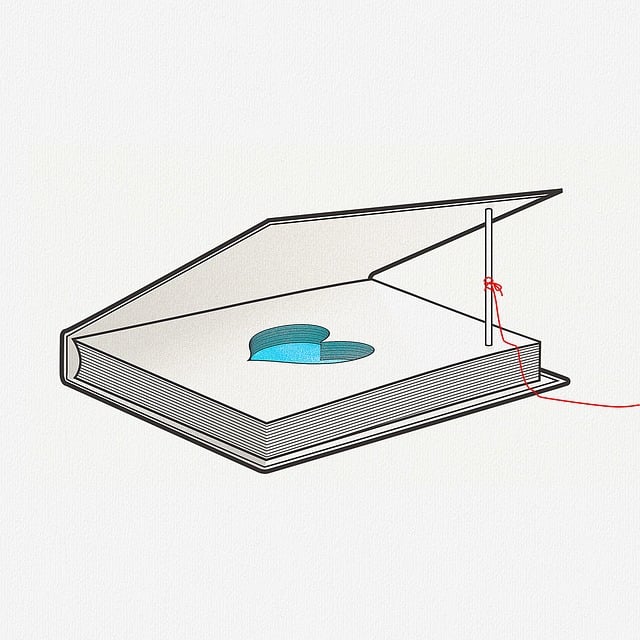Do you suffer from sensitive teeth? Discover how veneers can provide relief, along with important dental considerations to keep in mind.
1. Understanding the Connection: The Relationship Between Veneers and Tooth Sensitivity
When it comes to enhancing your smile, veneers have become a popular option. These thin, custom-made shells are placed over the front surface of your teeth to improve their appearance and provide a more uniform smile. However, it’s important to understand the potential connection between veneers and tooth sensitivity.
1. Causes of Tooth Sensitivity with Veneers: Despite their many benefits, veneers can sometimes lead to increased tooth sensitivity. This discomfort may occur due to various factors:
- Removal of tooth enamel during the veneer placement procedure, which can expose the sensitive dentin layer.
- Fitting the veneer too closely to the nerve endings in your teeth, leading to sensitivity.
- Improper bonding of the veneer, allowing liquids and food particles to seep beneath the veneer and irritate the tooth.
2. Managing Tooth Sensitivity: While tooth sensitivity after getting veneers may be a temporary concern, there are ways to manage and minimize discomfort:
- Using toothpaste designed for sensitive teeth can help reduce discomfort and protect your teeth.
- Practicing good oral hygiene, including regular brushing and flossing, can prevent irritation and sensitivity.
- Avoiding extremely hot or cold foods and beverages can reduce sensitivity triggers.
- Discussing any concerns with your dentist, who can assess the situation and make necessary adjustments to alleviate sensitivity.
By understanding the potential connection between veneers and tooth sensitivity, you can be better prepared and take necessary steps to maintain your oral well-being while enjoying the benefits of a stunning smile.
2. Exploring the Causes: What Triggers Tooth Sensitivity and How Veneers Can Help
Tooth sensitivity can be caused by a variety of factors, and understanding these triggers can help in finding effective solutions. One common cause of sensitivity is exposed dentin, which occurs when the protective enamel on the outer layer of the tooth is worn down. This can be a result of aggressive brushing, teeth grinding, or even acidic foods and drinks. Another cause is gum recession, where the gum tissue pulls back and exposes the sensitive root surface. Tooth decay and cavities can also lead to sensitivity, as the decay can reach the nerve endings within the tooth. Additionally, certain dental procedures such as teeth whitening or the placement of dental fillings can cause temporary sensitivity.
Veneers can be a great solution for individuals experiencing tooth sensitivity. These thin, custom-made shells are bonded to the front surface of the teeth, providing an extra layer of protection. By covering the exposed dentin and reducing the direct contact between the teeth and external stimuli, veneers can help alleviate tooth sensitivity. Furthermore, veneers can also address other cosmetic concerns such as discoloration, chips, or cracks, enhancing the overall appearance of the smile. With advancements in dental technology, veneers are now made of high-quality materials that are both durable and natural-looking, ensuring long-term effectiveness and a seamless blend with the existing teeth.
3. Unveiling the Solution: How Veneers Provide Relief for Sensitive Teeth
Sensitive teeth can cause discomfort and pain, especially when consuming hot or cold food and drinks. If you’re tired of avoiding your favorite treats or experiencing painful twinges, veneers might just be the solution you’ve been looking for. Here’s how veneers can provide relief for sensitive teeth:
1. Protective layer: Veneers act as a protective layer for your teeth, shielding them from external stimuli that trigger sensitivity. Whether it’s hot, cold, acidic, or sweet foods, veneers act as a barrier, reducing direct contact with the nerve endings and providing immediate relief.
2. Customized fit: Each veneer is custom-made to fit perfectly over your natural teeth, ensuring optimal comfort and functionality. This personalized fit not only improves your smile aesthetically but also helps in reducing sensitivity. By covering any exposed dentin or enamel, veneers prevent these sensitive areas from being exposed to the elements that cause discomfort.
4. The Ideal Candidate: Who Can Benefit from Veneers as a Treatment for Tooth Sensitivity
Veneers are an excellent solution for individuals who suffer from tooth sensitivity and seek long-lasting relief. This popular cosmetic dental treatment not only enhances the appearance of your smile but also addresses the underlying cause of sensitivity. While not everyone may qualify as an ideal candidate, those who experience tooth sensitivity due to enamel erosion, worn out tooth enamel, or exposed tooth roots can greatly benefit from veneers.
Here are some key factors that make someone suitable for veneers as a treatment for tooth sensitivity:
- Presence of tooth sensitivity caused by enamel erosion, worn out tooth enamel, or exposed tooth roots.
- Good oral health, including healthy gums and absence of active tooth decay or gum disease.
- Full understanding of the treatment process, including the potential risks and limitations.
- Commitment to maintaining good oral hygiene practices, such as regular brushing, flossing, and dental check-ups.
- Realistic expectations about the outcome of the procedure, as veneers can significantly reduce sensitivity but may not eliminate it entirely.
By considering these factors, you can determine if veneers are the right solution to address your tooth sensitivity effectively. However, it is always recommended to consult with a qualified dentist who can assess your specific dental condition and provide personalized recommendations.
5. Aesthetic Appeal vs. Sensitivity Concerns: Balancing the Pros and Cons of Veneers
Veneers offer a remarkable solution for those seeking to enhance their smiles, but it is essential to consider both the aesthetic appeal and the potential sensitivity concerns associated with this popular dental treatment. Balancing the pros and cons is crucial to making an informed decision. Here, we delve into the key considerations.
Aesthetic Appeal
Pros:
- Veneers are custom-made to match the shape, size, and color of your natural teeth. This ensures a seamless, natural-looking smile that can dramatically improve your appearance.
- They can effectively correct a range of cosmetic dental issues, including discoloration, crookedness, chipping, and uneven spacing.
- Veneers provide a long-lasting solution, with most patients enjoying their enhanced smile for a decade or more.
Cons:
- Veneers are irreversible, as a small amount of enamel needs to be removed from the teeth to accommodate the veneer. This means you’ll need to commit to this dental treatment for the long term.
- The cost of veneers can be higher than other cosmetic dental procedures, and they may not be covered by insurance.
Sensitivity Concerns
Pros:
- Veneers can provide a protective barrier for teeth that are naturally more sensitive, reducing discomfort and improving your overall dental experience.
- They are stain-resistant, so you can enjoy your favorite foods and beverages without worrying about discoloration.
Cons:
- In some cases, the application of veneers may lead to temporary sensitivity immediately after the procedure. However, this sensitivity typically subsides within a few days.
- While rare, in a small number of cases, sensitivity may persist or increase after getting veneers. This is more likely to occur if a significant amount of enamel was removed during preparation.
6. Veneers as a Protective Shield: How They Can Shield Sensitive Teeth from External Factors
One of the remarkable benefits of veneers is their ability to act as a protective shield for sensitive teeth, shielding them from various external factors. This has been a game-changer for many individuals who experience discomfort or pain when consuming hot or cold foods and beverages. By covering the surface of the tooth with a thin porcelain shell, veneers provide an extra layer of insulation, reducing sensitivity and allowing for a more enjoyable eating experience.
Here’s how veneers can effectively shield sensitive teeth:
- 1. Insulating properties: Veneers are excellent insulators, providing a barrier between the nerve endings in the tooth and external irritants. They prevent direct contact between the sensitive dentin and triggers such as cold air, hot drinks, or acidic foods. This insulation greatly minimizes sensitivity while preserving the natural appearance of your smile.
- 2. Protection from wear: Sensitive teeth are often vulnerable to wear and tear. Veneers can safeguard the enamel of the tooth, which is crucial for maintaining tooth structure. The thin layer of porcelain acts as a protective coating, preventing further erosion and reducing the risk of potential damage from biting or chewing.
With veneers as a protective shield for sensitive teeth, you can bid farewell to discomfort and sensitivities, reclaiming the joy of enjoying your favorite foods and beverages.
7. The Customization Factor: Tailoring Veneers to Alleviate Sensitive Teeth Concerns
The customization factor of veneers plays a crucial role in alleviating sensitive teeth concerns. With veneers, it is possible to tailor the treatment to meet individual needs, providing an effective solution for those with sensitive teeth. Here’s how this customization factor works:
1. Material selection: Dentists can choose from a variety of materials when creating veneers, such as porcelain or composite resin. The choice of material depends on the sensitivity level of the patient’s teeth. Porcelain veneers are known for their durability and resistance to staining, making them a great option for those with sensitive teeth.
2. Thickness adjustments: One of the key customization options for veneers is adjusting their thickness. Dentists can make veneers thinner or thicker to accommodate the patient’s specific needs. Thinning the veneer can help reduce sensitivity by minimizing the impact on the tooth’s nerve, allowing for a comfortable fit while maintaining a natural appearance.
8. Long-Term Results: Maintaining Sensitivity-Free Teeth with Veneers
One of the key advantages of veneers is their ability to provide long-term results, ensuring that your teeth remain sensitivity-free. Here are some important considerations to help you maintain your veneers and enjoy a stunning smile for years to come:
Careful Oral Hygiene: Maintaining good oral hygiene practices is crucial for the longevity of your veneers. This includes brushing your teeth twice a day with a soft-bristled toothbrush and using a non-abrasive toothpaste. Additionally, it is important to floss daily and rinse your mouth with an alcohol-free mouthwash.
Regular Dental Check-ups: Make it a priority to visit your dentist regularly for check-ups and professional cleanings. These routine visits allow your dental professional to monitor the condition of your veneers, detect any potential issues early on, and provide necessary guidance for optimal oral health. They can also polish your veneers, ensuring that they maintain their original shine.
9. Working with a Dental Professional: Finding the Right Dentist for Your Veneer Needs
When it comes to getting veneers, finding the right dentist is crucial to achieving the perfect smile you desire. With so many dental professionals out there, it can be overwhelming to know where to start. Here are some essential factors to consider when selecting a dentist for your veneer needs:
- Qualifications and Experience: Look for a dentist who specializes in cosmetic dentistry and has extensive experience in performing veneer treatments. Check if they are a member of reputable dental associations and ask about their educational background and training.
- References and Reviews: Ask friends, family, or colleagues for recommendations. Additionally, read online reviews and testimonials from previous patients to get an idea of the dentist’s reputation. It’s also a good idea to request before and after photos of veneer cases they have worked on.
- Consultation and Communication: Schedule a consultation with potential dentists to discuss your goals and concerns. Pay attention to their ability to listen, answer your questions, and explain the veneer procedure clearly. Effective communication is vital in ensuring you and the dentist are on the same page.
Remember, finding the right dentist for your veneer needs is essential for a successful outcome. Take your time to research and consider your options, and don’t hesitate to schedule consultations with multiple dentists until you find the one who makes you feel confident and comfortable.
10. Beyond Veneers: Exploring Alternative Solutions for Sensitive Teeth Management
When it comes to managing sensitive teeth, veneers are not the only solution available. In fact, there are several alternative options that can provide relief and improve your oral health. Here are some alternatives to consider:
- Desensitizing toothpaste: This special type of toothpaste contains ingredients that help to block the nerve endings in your teeth, reducing sensitivity.
- Fluoride treatments: Fluoride treatments can help strengthen your tooth enamel and reduce sensitivity. These treatments can be done at your dentist’s office or with prescription toothpaste.
- Gum grafting: If your sensitive teeth are due to receding gums, gum grafting may be a suitable solution. During this procedure, gum tissue is taken from another part of your mouth and attached to the affected area, covering the exposed roots and reducing sensitivity.
Additionally, it’s important to take preventive measures to manage sensitive teeth. Avoiding acidic foods and drinks, using a soft-bristled toothbrush, and practicing good oral hygiene can all help to reduce sensitivity. Consulting with your dentist is crucial to determine the best alternative solution for your specific needs and to ensure long-term relief. By exploring these alternatives beyond veneers, you can find a suitable option to manage your sensitive teeth and enjoy improved oral health.
In conclusion, veneers can effectively address dental sensitivity, providing a long-lasting solution. However, it’s crucial to consult your dentist to evaluate individual suitability. Veneers offer both aesthetic and functional benefits, enhancing your smile and restoring confidence. Consider this option if you suffer from sensitive teeth and desire an attractive, pain-free smile.






